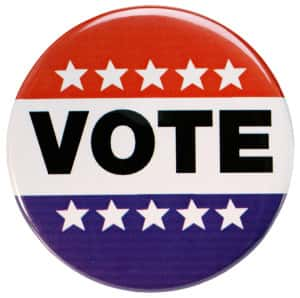
After several months of litigation, an Iowa judge has determined that half of the recent voter identification law was unconstitutional.
House File 516 was signed into law in 2017, establishing more strict voter ID rules. Opponents claimed it unfairly targeted the poor, elderly, people with disabilities, and minorities, making it more difficult for them to vote. Supporters, including Iowa Secretary of State Paul Pate, said the law was aimed at making it easy to vote, but difficult to cheat. Judge Joseph Seidlin ruled that the aspects of the law that required voters to show ID at the polls, as well as requiring a voter registration number on absentee ballots, were acceptable. However, Seidlin did strike down a provision that would have prohibited election workers from issuing voter ID cards based on driver’s license or non-driver records from the Department of Transportation. He also ruled that it was unconstitutional to allow election officials to dispute signatures on a registered voter’s application.
The decision maintains the primary identification rules that had been slowly rolled out over the last two years, so Dallas County Auditor Julia Helm reminds voters what they’ll need to bring for the upcoming city and school election. “Preregistered voters at the polls are required to show a driver’s license, (a) non-driver ID, passport, military veteran’s ID, tribal ID, or a voter card. If you have your driver’s license, that’s what you need. When we had the special election up here in Perry not too long ago, we didn’t have any problem. Everybody brought their ID or they brought an attestor with them to attest where they lived, and it worked out great. We had no provisional ballots because of that.”
The city and school election will be on November 5th, with early and absentee voting starting on October 7th. Helm emphasizes that in spite of the voter ID requirements, no one will ever be turned away at the polls, so she encourages everyone to get out and vote.

